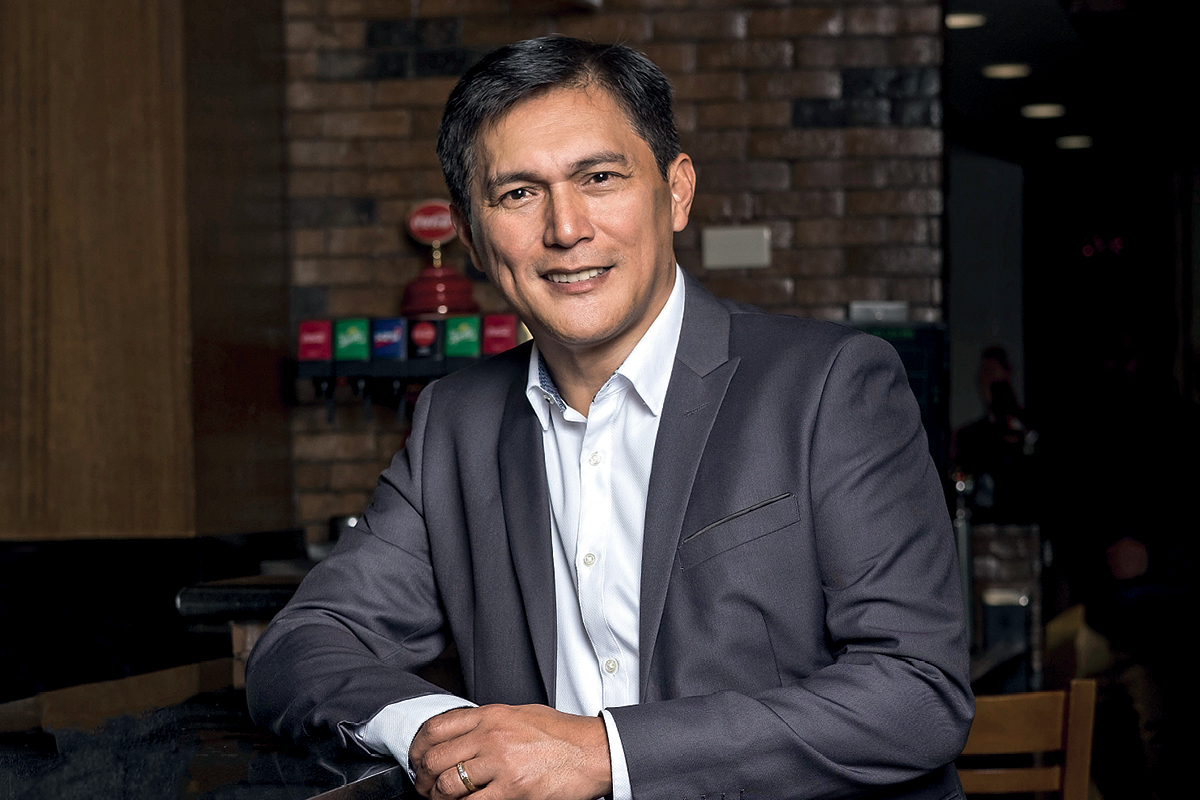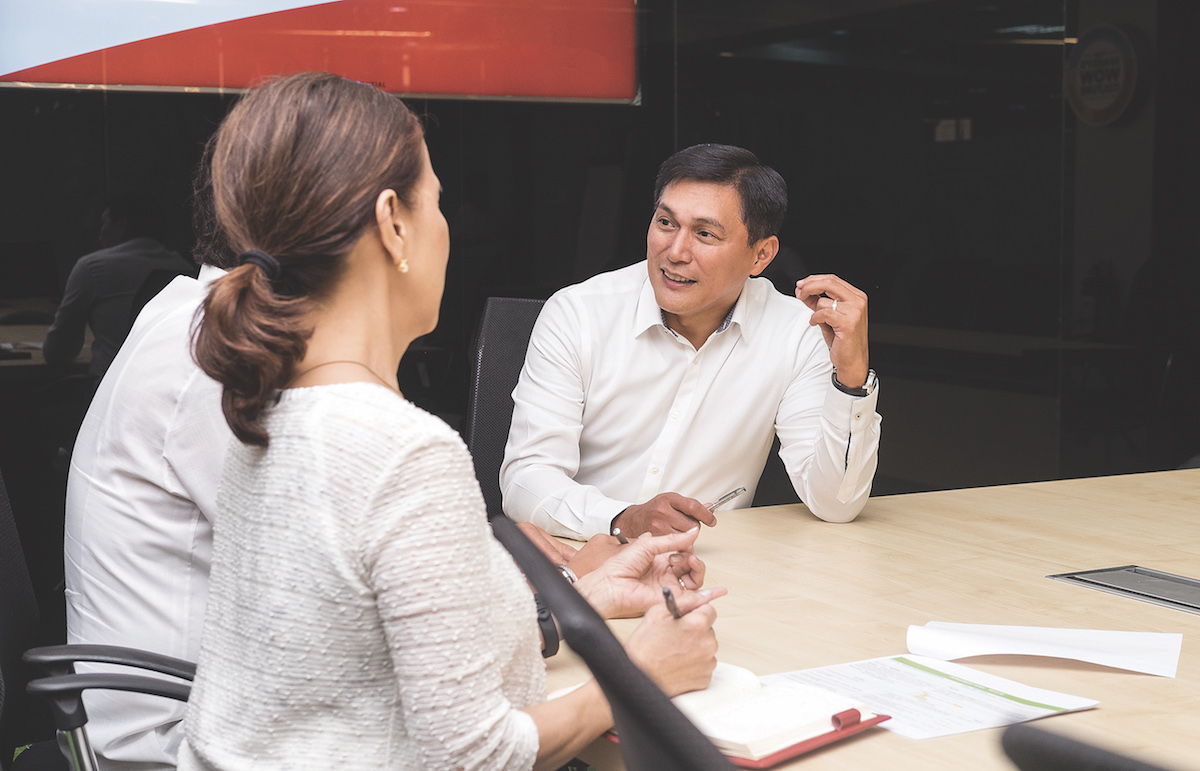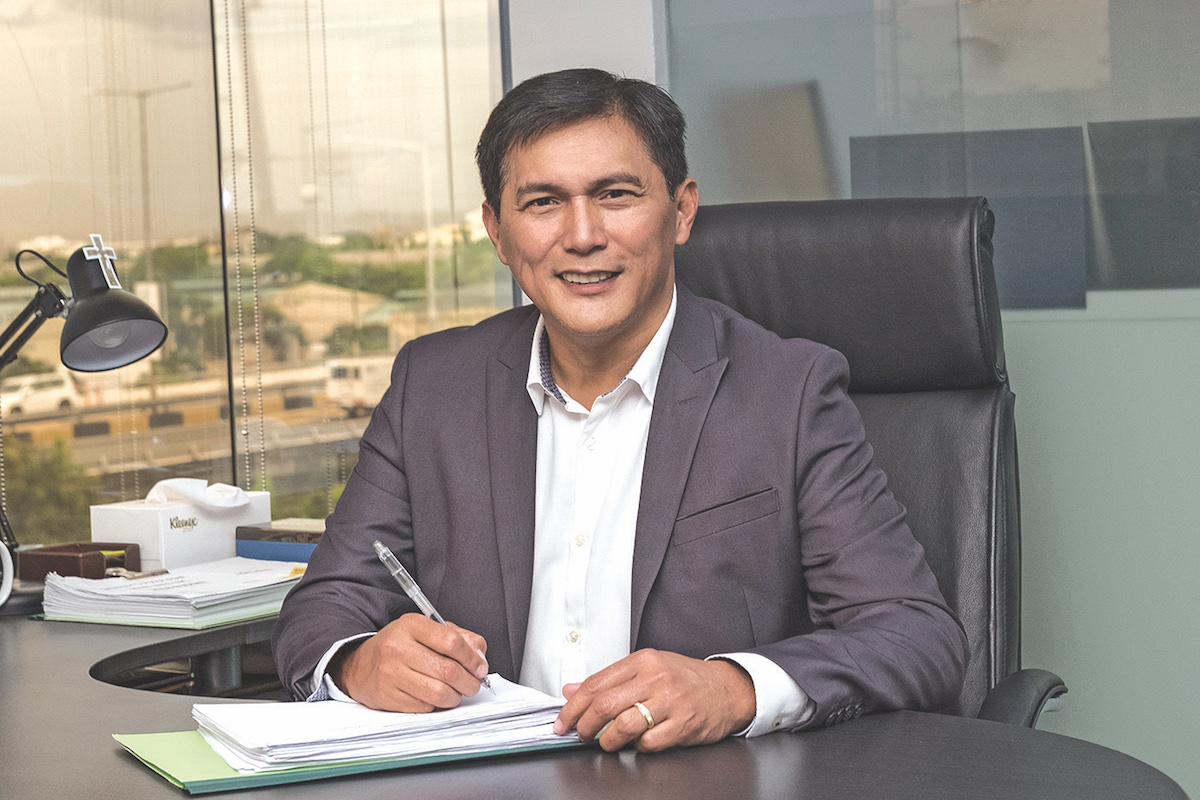Born in Sacramento in 1954, Shakey’s Pizza has an enduring legacy as the first pizza chain in the United States. International expansion began in 1968, and it wasn’t long after that the first Shakey’s opened in the Philippines, in 1975.
The chain has an equally impressive reputation in the South-East Asian nation. Shakey’s President and CEO Vicente Gregorio, who was invited to lead the company in 2003, has played a key role in the organisation’s dramatic turnaround and sustained success.

With more than 30 years of food service industry experience, Vicente has been consistently driving an organisational cultural that has made Shakey’s regain the leadership position in the segment.
The CEO Magazine:
What motivates you about your position?
Vicente:
Having worked my way up to this position, I know how difficult and how important the role I play is and how it impacts the company and its people. I try my best constantly because my belief is that the things I do and say have a big impact on many people.
I’m not one to shy away from challenges and responsibilities. I don’t want to be at the back of the stage. I enjoy taking the lead; I’m competitive. Growing up I enjoyed sports, teamwork; this has helped me survive and evolve in this environment.
You mentioned you’ve had challenges throughout your career – what are some examples of that and how did you overcome them?
I’m an engineer by training. Originally, my intention was to pursue that as a career but as I worked in this business, I realised I enjoyed working with people, so it became less a job, and more something I loved doing. I became passionate about this business, and I realised I could excel in it.
The challenge was that people would ask, ‘Who is this young man? Why should we listen to him?’ You must ensure that you always give it your best. It’s not enough to meet expectations. You need to exceed expectations, and it has been proven time and again throughout my career that whenever we excel, we grow.
How do you hope to see Shakey’s evolve in the Philippines?
The brand has been in the country since 1975. It ’s a household name. But despite having been here more than 40 years, the brand remains relevant and robust. We intend to push through with sustainable growth and profitability.
We’ve realised this in the past 15 years. The company has grown more successful in the industry, having seen double-digit growth for 15 consecutive years. With a young population and the country’s economic potential, we see the brand as able to keep expanding, capitalising on these predicted improvements.
What’s responsible for this continuous growth? Why has Shakey’s been so successful for so long?
Every Filipino grew up with our brand. The legacy of the brand is powerful. But we also continue to find ways to provide the consumers with the best value for their pesos. We focus on the guests and maintain our commitment to wowing them.
The efforts of the company have been acknowledged, and our guests continue to patronise Shakey’s because of that. Each day, we examine how we can offer better service, more products, more innovation, better-looking stores, more convenience. How do we serve them faster, safer? It all adds up in terms of market perception.
Speaking of customers, Shakey’s aims to attract families and groups in the A, B and C income brackets. What’s your strategy to attract those customers?
First, I’ll explain – Shakey’s doesn’t have customers. That word is forbidden here. We have guests. Why? In our teams, there’s a world of difference between a customer and a guest. A ‘guest’ suggests a higher level of expectations. We focus on them, and make sure they’re constantly surprised by our products, services, promotions and campaigns.
That’s how we’ve taken a leading role in the industry. When it comes to restaurants with table service, we’re number one. When it comes to pizza, we’re number one, though it’s been a close fight with other brands.

How does your supplier network help you to provide the best possible service to your guests?
We have had long-lasting relationships with our key suppliers. I share with them a paradigm that’s better than the old supplier–client paradigm of ‘win–win’’ – I win, and the supplier wins. It’s a popular management term. I’ve proposed that rather than this, it should be ‘win–win–win’.
I encourage our partners to work with us to make sure that the guest wins too. Only when we work together to help the guests win will we find mutual and sustainable success.
How do you define success within the scope of your role?
Success is when we set out goals, and then achieve or exceed them. To do this, leaders must truly understand what the business requires, what it’s about, and what the target market needs. Over the years, I have seen that teams, companies and people that do that enjoy long-term success. They last.
They don’t just win today and fail tomorrow. They’re passionate and consistently prioritise their goals, and have the commitment and dedication to see them through.
What specific initiatives do you have to encourage this mindset within your team?
When I came to Shakey’s in 2003, the company was in a dire financial situation. The task was to turn that around. We needed to inspire the team to believe in our ability to regain the number one position. Each day, my task was to preach this mindset of excellence.
That kind of initiative – the focus on the right people, training them the best way we can and rewarding and recognising their efforts – has borne fruit. That culture is entrenched within the company. We aimed high, and we worked together to achieve the objectives.
When’s the right time to compromise in business?
In my mind, the only possible compromise is when you have high, lofty goals, and if circumstances warrant they cannot be met, then you lower those goals, still aiming for satisfactory results at least.
I never accept unsatisfactory or poor results, or something that doesn’t add value. That’s the advantage of aiming high and we do everything we can to achieve that. Even if you’re prevented from reaching that, it’s okay to step back from that, as long as you’re satisfactory at worst.
What do you consider to be the most essential quality of leadership?
The determination to see things through. People made you a leader because they believe you can make things happen. If you can’t do that, if you’re scared or your inner strength is weak, that’s a burden.
Leaders have to take charge. They have to have a plan. This is the case even in politics and sports. People excel because their spirit, mindset and attitude are firm, and allow them to go the extra mile.

What piece of advice has helped you to find success?
‘Don’t do it if you don’t love it.’ Without passion, you’ll never have the perseverance and commitment to go through this business day to day. There’s an important factor I look for in people – a burning desire to meet and exceed objectives, no matter what’s thrown at them, because they believe it will serve a bigger purpose.
In the Philippines, we call it ‘gigil’, a kind of inner energy. It’s a strong burning desire to see things through. I have seen so many people go up the ladder and many businesses become strong because of that kind of passion.


